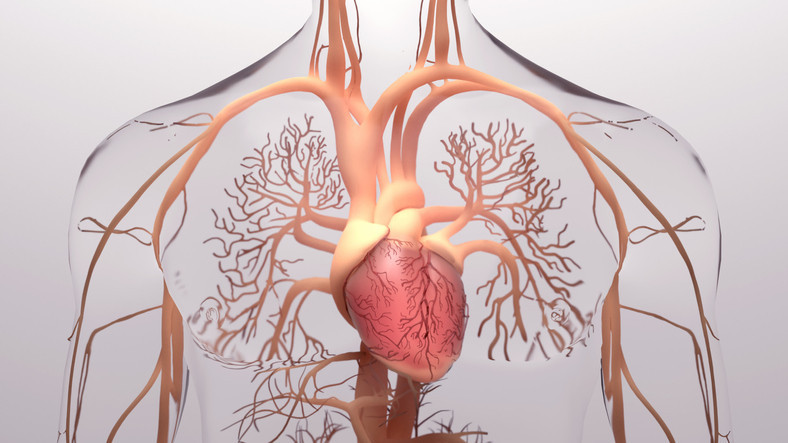
5 timeless habits for better health

What are the symptoms of prostate cancer?

Is your breakfast cereal healthy?

When pain signals an emergency: Symptoms you should never ignore

Does exercise give you energy?

Acupuncture for pain relief: How it works and what to expect

How to avoid jet lag: Tips for staying alert when you travel

Biofeedback therapy: How it works and how it can help relieve pain

Best vitamins and minerals for energy

Should you take probiotics with antibiotics?
Cholesterol Archive
Articles
Women's heart attacks more strongly connected to different risk factors than men's
A 2022 study found that women under 55 experiencing heart attacks have different leading risk factors than men in this age group. For women, diabetes, depression, high blood pressure, and low household income are strong risk factors for heart attack.
Heart health guidelines get updated
The American Heart Association recently revised its checklist for achieving optimal heart health. Adequate sleep was added, and updates were made to previous recommendations for diet, cholesterol and blood sugar measurements, and nicotine exposure.
Your guide to taking statins
Statins continue to be a first-line treatment for many people at risk of heart attacks and strokes. They help reduce cholesterol levels, reduce plaque build-up, and protect against plaque rupturing, and fight inflammation. Possible side effects are often mild, if they occur, and go away after a brief period. Otherwise, people can manage them by changing the dosage or switching to another type of statin, per their doctor's direction.
The lowdown on "good" cholesterol
Long touted as beneficial for heart health, high-density lipoprotein (HDL) is more complicated than experts once thought. Some forms of HDL grab cholesterol from the bloodstream and other tissues and transport it to the liver, where it's recycled or disposed, but other types are neutral or perform the opposite action. Most drugs that raise HDL don't seem to prevent heart disease, and very high HDL levels may even be linked to a higher risk.
Hybrid exercise training
Hybrid exercise training combines heart-pumping aerobic action with muscle-strengthening moves in the same exercise session. The strategy has the advantage of meeting two key goals of the federal Physical Activity Guidelines in one fell swoop. And it also appears to be one of the best—and most time-efficient—ways for people who are overweight to lower their risk of cardiovascular-related risk factors. Strong muscles boost a person's basal metabolic rate—the amount of energy the body needs to keep working during rest. That improves weight-loss efforts by ramping up the number of calories burned.
Medications to lower triglycerides
People with high triglyceride levels may be candidates for icosapent ethyl (Vascepa), a drug made from highly purified fish oil. It lowers triglycerides and, when taken with a statin, lowers the risk of heart attack, stroke, and death from cardiac causes.
How good is your cardiometabolic health — and what is that, anyway?
An analysis shows less than 7% of adults in the US meet the criteria for optimal cardiometabolic health. Taking small steps to help control and improve key risk factors can reduce the odds of a heart attack or stroke.
What's driving heart attacks in younger adults?
Seven factors appear to account for most first heart attacks in people ages 55 and younger: diabetes, depression, high blood pressure, current smoking, family history of early heart attack, low household income, and high cholesterol.
What are the different types of body fat?
Two important types of fat in the body are white fat and brown fat. White fat is located in the chest, abdomen, and upper legs; too much of it constitutes obesity. Its function is to provide insulation against the cold, store fats derived from food, and continually release small amounts of the fats to be converted into energy. Brown fat is found in small amounts in the neck, shoulders, chest, and abdomen. Its main function is to burn the fat it stores, creating heat that keeps the body warm.
Nordic diet may improve cholesterol, blood sugar levels
A traditional Nordic diet featuring whole grains, berries, canola oil, fish, and low-fat dairy may improve heart-related risk factors, even if people following the diet don't lose weight.

5 timeless habits for better health

What are the symptoms of prostate cancer?

Is your breakfast cereal healthy?

When pain signals an emergency: Symptoms you should never ignore

Does exercise give you energy?

Acupuncture for pain relief: How it works and what to expect

How to avoid jet lag: Tips for staying alert when you travel

Biofeedback therapy: How it works and how it can help relieve pain

Best vitamins and minerals for energy

Should you take probiotics with antibiotics?
Free Healthbeat Signup
Get the latest in health news delivered to your inbox!
Sign Up











